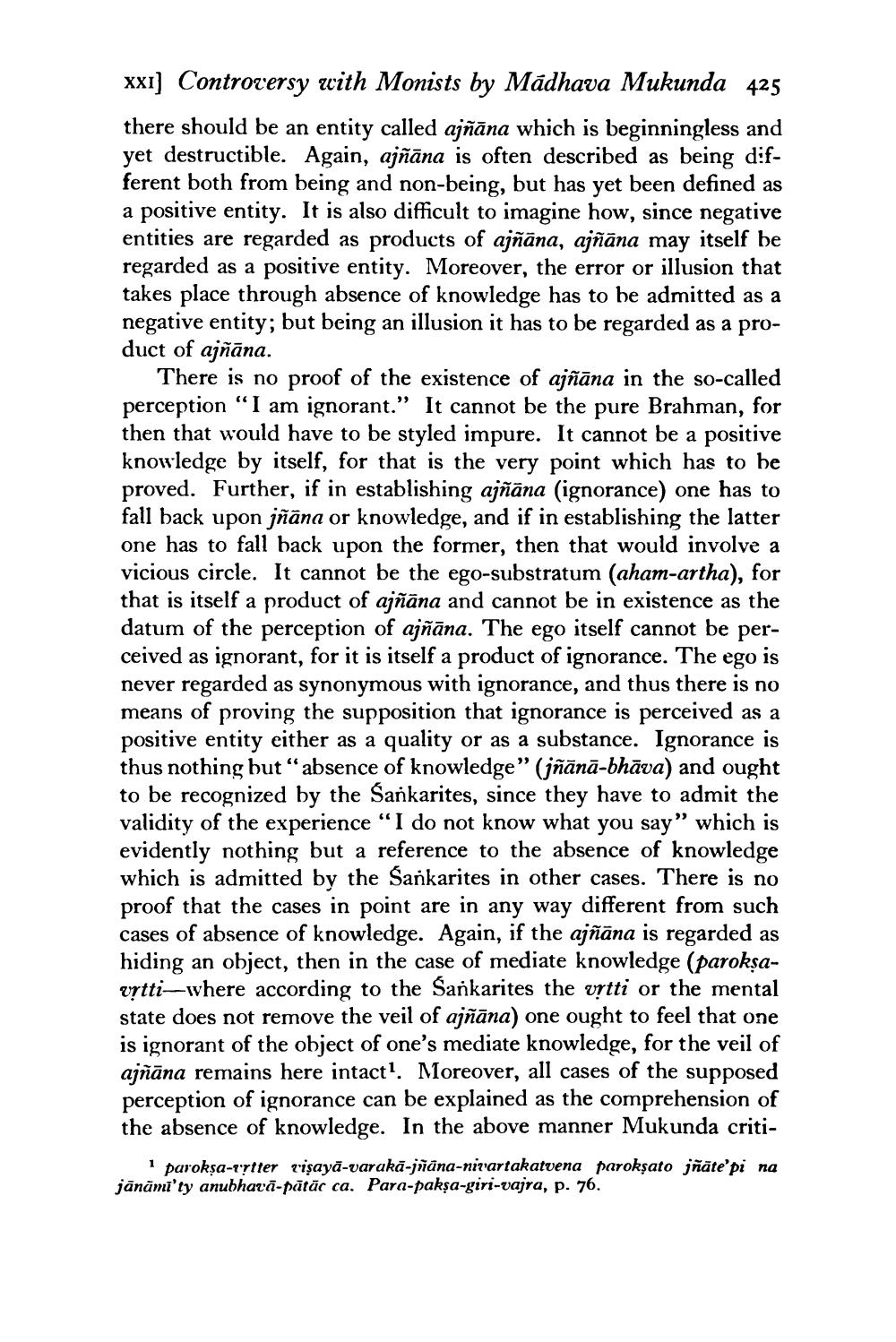________________
XXI] Controversy with Monists by Madhava Mukunda 425
there should be an entity called ajñāna which is beginningless and yet destructible. Again, ajñāna is often described as being different both from being and non-being, but has yet been defined as a positive entity. It is also difficult to imagine how, since negative entities are regarded as products of ajñāna, ajñāna may itself be regarded as a positive entity. Moreover, the error or illusion that takes place through absence of knowledge has to be admitted as a negative entity; but being an illusion it has to be regarded as a product of ajñāna.
There is no proof of the existence of ajñāna in the so-called perception "I am ignorant." It cannot be the pure Brahman, for then that would have to be styled impure. It cannot be a positive knowledge by itself, for that is the very point which has to be proved. Further, if in establishing ajñāna (ignorance) one has to fall back upon jñāna or knowledge, and if in establishing the latter one has to fall back upon the former, then that would involve a vicious circle. It cannot be the ego-substratum (aham-artha), for that is itself a product of ajñāna and cannot be in existence as the datum of the perception of ajñāna. The ego itself cannot be perceived as ignorant, for it is itself a product of ignorance. The ego is never regarded as synonymous with ignorance, and thus there is no means of proving the supposition that ignorance is perceived as a positive entity either as a quality or as a substance. Ignorance is thus nothing but "absence of knowledge” (jñānā-bhāva) and ought to be recognized by the Sankarites, since they have to admit the validity of the experience "I do not know what you say" which is evidently nothing but a reference to the absence of knowledge which is admitted by the Sankarites in other cases. There is no proof that the cases in point are in any way different from such cases of absence of knowledge. Again, if the ajñāna is regarded as hiding an object, then in the case of mediate knowledge (paroksavrtti-where according to the Sankarites the vṛtti or the mental state does not remove the veil of ajñāna) one ought to feel that one is ignorant of the object of one's mediate knowledge, for the veil of ajñāna remains here intact1. Moreover, all cases of the supposed perception of ignorance can be explained as the comprehension of the absence of knowledge. In the above manner Mukunda criti
1 parokṣa-vṛtter viṣayā-varakā-jñāṇa-nivartakatvena parokṣato jñāte'pi na jānāmi'ty anubhavā-pātāc ca. Para-pakṣa-giri-vajra, p. 76.




